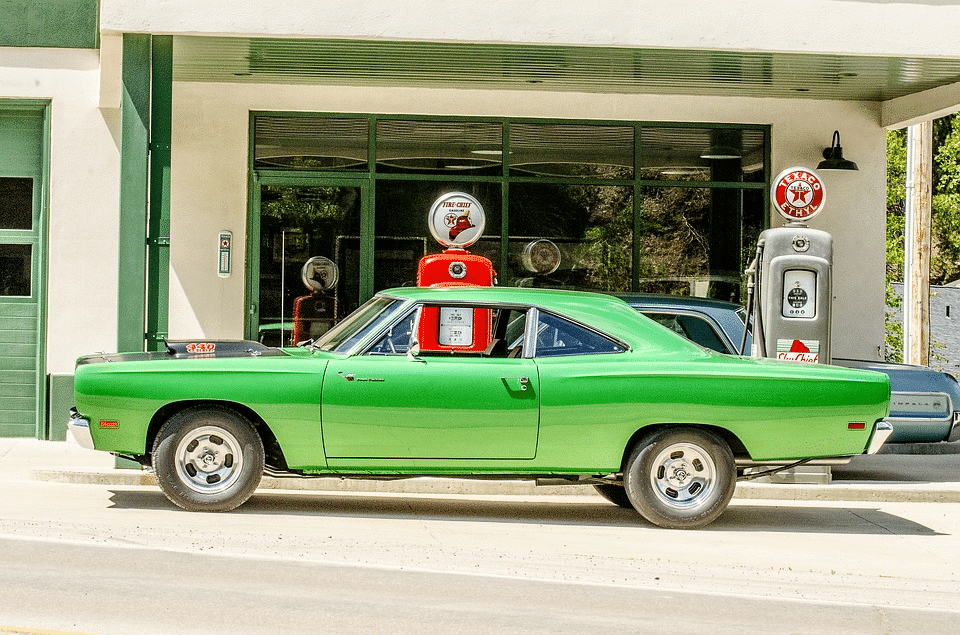
The Environmental Impact of Car Use and Maintenance During COVID-19
A properly maintained car not only performs better and costs less to run, but it can help protect the planet. Of course not using your fossil fuel car at all, which has become far more common since the start of the pandemic, can also help.
Let’s take a slightly friendlier look at the implications of COVID-19 and see how it has affected the environment through changes in so many people’s car maintenance habits. Learning the lesson from the pandemic, we can—and should—try to keep car maintenance more considerate of the environment than ever before.
COVID-19 and the Environment
COVID-19 has not been good news for humans, but it was—albeit temporarily—good news for the planet. Global carbon dioxide emissions fell by 6.4% in 2020. However, this annual fall is due to the widespread pandemic lockdowns in the first few months. Daily global CO2 emissions had decreased by 17% by early April 2020. Reduced surface transport was responsible for just under half of that fall.
But once lockdowns eased, emissions began to increase again. The global gain wasn’t as much as climate scientists had hoped. By December 2020, global energy-related CO2 emissions were 2% higher than they had been in December 2019. Now, with more people choosing their own car over public transport because of infection fears, CO2 emissions from travel seem set to continue to rise.
“The lockdown-related fall in emissions is just a tiny blip on the long-term graph,” World Meteorological Organization secretary general, Prof Petteri Taalas, told the BBC. “We need a sustained flattening of the curve.”
Source: How COVID-19 Affected the Automotive World
Car Maintenance Habits During the Pandemic
Lockdowns, company shutdowns and home office regime meant many people’s cars spent much of 2020 on the driveway. It also meant people delayed car maintenance; 57.6% of US dealerships and repair shops reported drivers were deferring car maintenance because of the pandemic, and in the UK, 56% of drivers used the Government’s MOT exemption to delay the legally required DVSA certification.
So why the deferments? According to a survey by BookMyGarage, the main reasons for delay were pandemic-related financial restraints (32.5%), reduction in mileage (29%) and fear of catching the virus (14.5%).
But weeks sitting on a drive can be just as problematic for cars as long hours on the road. Tires gradually lose pressure and batteries lose charge, which can affect battery-dependent functions such as stop-start.
How Regular Car Maintenance Can Help Protect the Planet
The CO2 emissions directly from petrol and diesel is around 10.9 kg per gallon (2.4 kg per litre), but around 14.3kg per gallon when you consider emissions from car construction and producing that fuel.
While the question of how eco-friendly traditional, fossil-fueled cars can possibly get when compared to electric vehicles is a whole ongoing debate, you might be surprised by how much difference proper maintenance can make to your car’s eco-friendly performance levels.
Regular car maintenance ensures the car parts designed to monitor and reduce emissions are performing optimally. These include the on-board diagnostic monitoring (OBD) system, catalytic converter, oxygen sensor, exhaust gas recirculation (EGR) system, air injection pump, positive crankcase ventilation valve, and misfire monitor. Regular engine tune-ups can additionally improve fuel consumption by 4-12%.
Checking these systems is usually best left to experts. However, there are a few good practices you can take care of on your own to ensure your car ‘runs green’, or at least as green as possible.
Green Car Maintenance Tips
When it comes to optimizing your car’s environmentally-friendly performance, the RAC recommends the following:
- Use a cleaning agent (or a premium fuel with cleaning additives) to remove deposits on the engine, which can reduce efficiency and increase emissions.
- Change your oil regularly using the correct grade oil and check engine oil levels between service intervals.
- Change the air filter regularly so airflow to the engine isn’t reduced because that increases engine wear and emissions. If you live in a dusty environment, these filters may need changing more regularly.
- Check your tire pressure at least once a month—even if your car has been idle. Tire pressure is important for safety and optimum performance, reducing fuel usage and emissions. Properly aligned and inflated tires can reduce fuel consumption by around 3.3%.
- Turn your air conditioning on at least once a week to help prevent unnecessary repairs down the line. If you do need to use your A/C while driving, turn it off a few miles before your destination; the system will continue circulating cool air via the fans.
Finally, you can also greenify your driving style. Your car, your wallet and the planet will thank you if you operate the vehicle with more consideration. Great improvements can be achieved by reducing idling, accelerating smoothly, braking and changing gear earlier, as well as sticking under 60mph whenever possible. Using and maintaining your car in a conscious way is a great example of a situation where saving money does go side by side with saving the planet.



Post a comment